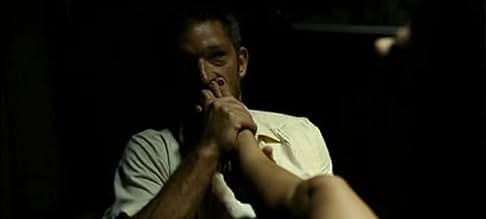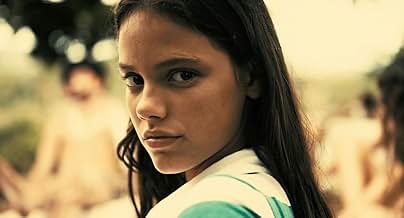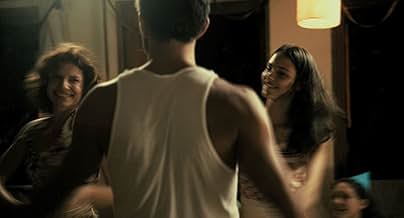IMDb RATING
6.7/10
3.1K
YOUR RATING
A 1980s-set drama about a teenage girl undergoing her sexual awakening when she learns about her father's infidelities.A 1980s-set drama about a teenage girl undergoing her sexual awakening when she learns about her father's infidelities.A 1980s-set drama about a teenage girl undergoing her sexual awakening when she learns about her father's infidelities.
- Awards
- 8 wins & 24 nominations
- Director
- Writers
- All cast & crew
- Production, box office & more at IMDbPro
Storyline
Did you know
- TriviaVincent Cassel speaks Portuguese fluently. He's a big fan of Brazilian culture and after this first experience working on a Brazilian film, he returned to make three more movies.
- SoundtracksBe My Baby
Written by Jeff Barry, Ellie Greenwich, Phil Spector
Performed by The Ronettes
Courtesy of Phil Spector International, Inc.
Produced by Phil Spector
Featured review
This is a coming of age story. Filipa is fourteen years old and dealing with the usual issues of a teen: sexuality, social acceptance, and self identity.
At the same time, her parents' relationship is crumbling under the weight of a real crisis.
All children confront the reality of their parents' imperfection at some point. Up till now, Filipa has seen her mother and (especially) her father through the eyes of an adoring child. She has to dispense with the childish viewpoint and confront reality, as she perceives it, just as the family's foundation is threatened. She feels her world crumbling around her as she realizes that she never really understood the real foundation of the family. In the end, she is adrift without any direction or understanding.
The resolution of this story is an imperfect one, with all involved parties grasping for the little pieces of happiness that can be salvaged. It is a realistic ending to a real-world story.
This story is about love, in all its forms--familial, romantic, platonic. It is love that sets them all adrift and love that provides whatever solace can be found.
At the same time, her parents' relationship is crumbling under the weight of a real crisis.
All children confront the reality of their parents' imperfection at some point. Up till now, Filipa has seen her mother and (especially) her father through the eyes of an adoring child. She has to dispense with the childish viewpoint and confront reality, as she perceives it, just as the family's foundation is threatened. She feels her world crumbling around her as she realizes that she never really understood the real foundation of the family. In the end, she is adrift without any direction or understanding.
The resolution of this story is an imperfect one, with all involved parties grasping for the little pieces of happiness that can be salvaged. It is a realistic ending to a real-world story.
This story is about love, in all its forms--familial, romantic, platonic. It is love that sets them all adrift and love that provides whatever solace can be found.
- How long is Adrift?Powered by Alexa
Details
Box office
- Gross worldwide
- $474,422
- Runtime1 hour 37 minutes
- Color
- Sound mix
- Aspect ratio
- 1.85 : 1
Contribute to this page
Suggest an edit or add missing content



























